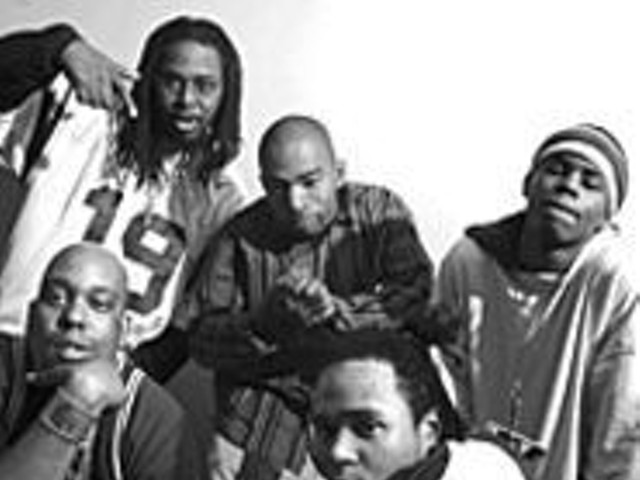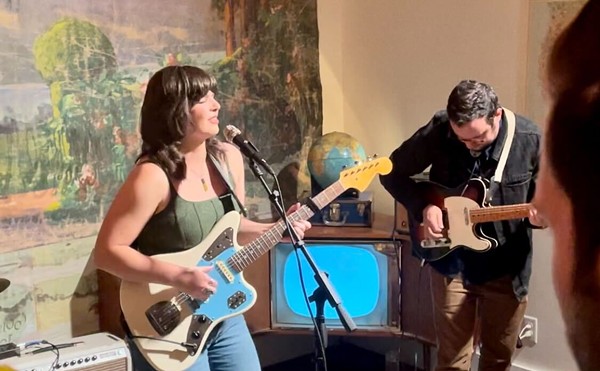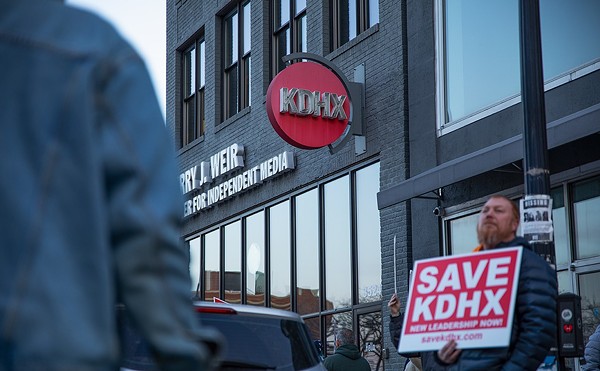But that's what scrap-heap retrospectives are supposed to do, right? Demonstrate that even when it was covering "Classical Gas" in student-union cafeterias, it was easy to tell that Steely Dan would change the face of popular music. Or that on those early boombox rehearsal tapes, you can hear the revolutionary ripples that Boyd Tinsley's violin would send outward from the undergraduate jam-band milieu of the Dave Matthews Band. Or that, you know, the Gin Blossoms never wrote a bum melody.
There is no such vindication to be found among these 81 tracks, spread across three CDs of largely unreleased material -- radio performances, acoustic demos, rough and alternate mixes, live cuts, studio outtakes and a handful of B-sides and compilation appearances -- and one DVD featuring dodgy home-video footage, some intermittently thrilling live performances and a bit of zany behind-the-music hijinks. What the really early stuff on Lights Out does definitively prove is that Nirvana (and Kurt Cobain in particular) had an idea -- as well as, perhaps more crucial, the patience and the persistence to turn it into talent.
That idea was pairing heavy metal's raw power with pop's emotional imperative, and if Lights Out does anything interesting for Nirvana's legacy, it's the way it weights that union with complicated questions of class. The war Nirvana fought was a cultural one: indie v. major, alternative v. mainstream, straight v. queer. Yet throughout so much of the music here, the dialectic that asserts itself is the tension between Cobain's blue-collar beginnings and his eventual Hollywood high life. "Do you know how much money we have?" the frontman asks his screaming hometown fans before a performance of the previously unreleased "Talk to Me" during a show at Seattle's Crocodile Café on October 4, 1992 -- well after "Smells Like Teen Spirit" conquered MTV and rock radio.
Cobain never made a mystery of his mistrust of fame -- indeed, many contend it's what finally killed him -- but it gives a perplexing psychological throb to the 40 minutes of grainy video footage recorded during a 1988 rehearsal at the home of Krist Novoselic's mother. Set up in a shabby bedroom devoid of furnishings beyond an oscillating fan and a weakly blinking strobe light, Cobain, a preternaturally goofy Novoselic and drummer Chad Channing bash through much of what would become their spotty 1989 Sub Pop debut, Bleach (itself a reminder that Nirvana didn't spring fully formed from Mark Arm's forehead). Cobain sings into a set list taped to a wood-paneled wall, seemingly allergic to the rock-star moves he winkingly indulged in later. At the same time, though, he looks miserable about living in this kind of heavy-metal backwater. During "Mr. Moustache," a real-life Mr. Moustache comes swaggering into the room, hoisting aloft what's left of a six-pack as he twirls into a beery solo slam dance, and you wonder whether Cobain felt that he was above this world of little-league misbehavior and perfunctory Zeppelin covers.
As indeed he was, even if his frustration wouldn't yield compelling music for a couple of years. Most of Lights Out's first disc is a slog: grumpy, badly recorded late-'80s proto-grunge sludge like "Anorexorcist" and "Help Me I'm Hungry" and the legendary "Pen Cap Chew," with Melvins drummer Dale Crover in Channing's seat. There are unlistenable versions of "Moby Dick" and a live "Heartbreaker" recorded at Nirvana's first gig in 1987; Cobain unconvincingly bluffs, "I don't know how to play it," before launching headfirst into the tune's central riff. "Beans" is sub-Ween home-recording four-track nonsense, while an early demo of Nevermind's "Polly" illustrates the virtue of tuning harmonies. Basically, this stuff is why rock clubs sell liquor.
Soon enough, though, Cobain's exasperation began to alchemize this rude blurting into meaning. Three Leadbelly covers, recorded in 1989 with Mark Pickerel and Mark Lanegan of the Screaming Trees -- products of a purported side project called Lithium -- give Cobain's ravaged yowl an outlet more articulate than "I'm a negative creep, and I'm stoned." They also predate the White Stripes' vision of ragged indie punk-blues, for whatever that's worth.
The pre-Nevermind material on the set's second disc improves dramatically, peaking with three solo-acoustic tracks -- "Been a Son," "Lithium" and the previously unreleased "Opinion" -- recorded live in 1990 at KAOS-FM, the community radio station at Evergreen State College in Olympia, Washington, where Cobain lived at the time. You can hear -- or at least project -- the effect that Olympia's lo-fi "love-rock" scene had on Cobain's music: His spray-paint guitar squall and juvenile-delinquent vocal sneer have been softened and deepened by the middle-class privilege of artistic ambition. The same goes for a handful of crackerjack demos -- "Drain You," "Aneurysm," "Pay to Play" (later retitled "Stay Away" on Nevermind) -- that began the record-biz buzz that erupted during the last half of 1991.
That's the thing about Nirvana: It refuted the tired rock aphorism that the further a band gets from its humble origins, the less connection it maintains with Truth and Beauty and Work That Will Stand the Test of Time. Anyone who says that In Utero, Nirvana's final studio album, isn't universes more compelling than Bleach isn't to be trusted -- a position backed up by emotionally devastated demos of "Heart Shaped Box" and "Rape Me" on Lights Out. Despite his reputation as a poet of disaffected small-town ennui, Cobain actually made a pretty shitty spokesperson. His true calling -- what history will remember him for, if that's how you insist on considering it -- was reflecting the persistent miseries and temporary elations of the nouveaux riche.
The next-to-last song on the box set's third disc is an acoustic demo of "You Know You're Right," the single from 2002's greatest-hits set. The version the radio played is a much better song than this one, but the way Cobain plays it -- carefully and quietly, as if to avoid waking a baby sleeping in the next room -- is almost unbearably poignant in context. It reminds you of how briefly Cobain actually lived as a dad -- that despite the money and celebrity and admiration, his final class crossover into fatherhood ended almost before it began.





